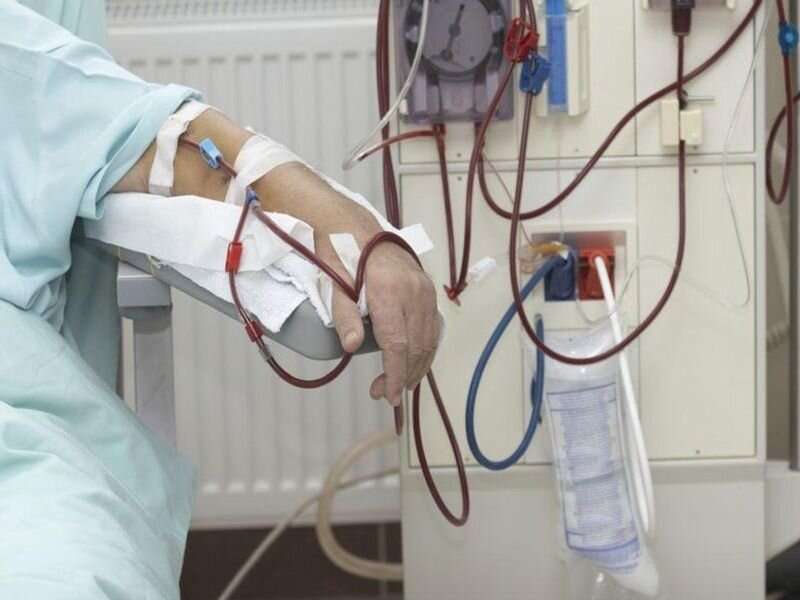(HealthDay)—For a majority of hemodialysis patients, a single dose of the BNT162b2 severe acute respiratory syndrome coronavirus 2 (SARS-CoV-2) vaccine fails to elicit a humoral response, according to a study published online May 12 in CMAJ, the journal of the Canadian Medical Association.
Rémi Goupil, M.D., from the Centre de recherche de l'Hôpital du Sacré-Cœur de Montréal, and colleagues obtained serial plasma from patients receiving hemodialysis and health care worker controls before and after vaccination with one dose of BNT162b2. Anti-receptor binding domain (RBD) immunoglobulin G (IgG) levels were measured in 154 patients receiving hemodialysis (135 without and 19 with previous SARS-CoV-2 infection), 40 controls (20 without and 20 with previous SARS-CoV-2 infection), and convalescent plasma from 16 patients.
The researchers found that among those without previous SARS-CoV-2 infection, anti-RBD IgG was undetectable at four weeks in 57 and 5 percent of patients receiving hemodialysis and controls, respectively. Of the patients with undetectable RBD IgG at four weeks, none had developed anti-RBD IgG by eight weeks. Severe COVID-19 developed after vaccination in three patients receiving hemodialysis. Among those with previous SARS-CoV-2 infection, those receiving hemodialysis had median anti-RBD IgG levels at eight weeks that were similar to controls at three weeks and to convalescent plasma.
"We advise that the second dose of the BNT162b2 vaccine be administered to patients receiving hemodialysis at the recommended three-week time interval, and that rigorous SARS-CoV-2 infection prevention and control measures be continued in hemodialysis units until vaccine efficacy is known," the authors write.
More information: Abstract/Full Text (subscription or payment may be required)
Journal information: Canadian Medical Association Journal
Copyright © 2021 HealthDay. All rights reserved.
























